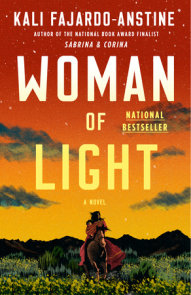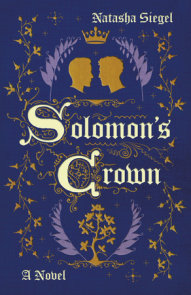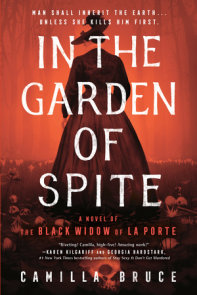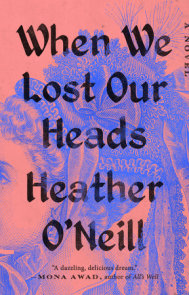READERS GUIDE
QUESTIONS AND TOPICS FOR DISCUSSION1. Had you ever read or heard the word “Jezebel” before? In what context? Did you have preconceived notions of “Jezebel” before reading this novel? How did those ideas shift, if at all, by the end?
2. Jezebel was a real queen of the ninth century. Think about other famous royal figures throughout history—do you think historical kings are viewed or spoken about differently than queens? In what ways? Has this dichotomy shifted at all when it comes to how we portray or discuss contemporary royal or famous figures—particularly women?
3. What role does anger play in the novel? How does this emotion show up in different characters? Is there a moral value attached to anger and its expression?
4. On a similar note, do you think Jezebel’s anger was justified? What do you think Barnard was trying to convey about female rage?
5. How does the novel portray friendship? Would you consider Jezebel and Sapphira friends? How does their relationship change throughout the book? How about Jezebel and Elijah?
6. What is the difference between Jezebel’s romantic relationships with Elijah and Ahab? Remember that Jezebel was married off to Prince Ahab at fifteen. Would you consider either of these relationships “love”? What role does choice play in love? Was either relationship more “true” than the other? How so?
7. When faced with a choice between love and ambition, Jezebel picked ambition. Do you think Jezebel made the right decision? Have you ever faced a similar choice? What did you do, or would you have done? Is one a worthier sacrifice?
8. Jezebel levies a hefty price on the priests during the drought, when they do not intercede on the country’s behalf with Yahweh. Did you think Jezebel made a necessary choice, or a reckless one? Do you think there can be a justifiable reason for the use of violent force? Historically, shows of violence can often be a performed as a display of strength. Is there a connection between the two?
9. At the closing of chapter 4, Jezebel shares how Astarte created her home, the city Tyre. Elijah questions this, calling it merely a story, albeit a good one. Jezebel responds angrily, claiming it wasn’t “just a story . . . . it [was] the truth.” How do we as a society determine “truth”? Does belief play a part in making something true? Does more or fewer people believing in a story make it more or less true? Consider this broadly, from history and journalism, to “he said/she said narratives” and memoirs, to political speeches and religious texts. Is truth malleable?
10. The novel offers several “crises of faith”: from Elijah and his dreams of Yahweh to Sapphira forced to understand that Jezebel, the would-be queen, is different from her childhood friend. Considering that faith can be placed not only in religion but also in places and people, are there other examples you can think of in the book? How do these crises shape the characters and their relationships? What key insights do these moments of change provide? In what ways have crises of faith showed up in your life?
11. Jezebel narrates the entire novel. Would you call her a reliable narrator?
12. Do you consider Jezebel a good person? What do you think constitutes a good person? Did you ultimately empathize with Jezebel? Does a character need to be a good person to be empathized with? Does a character need to be likeable to be empathized with? Can a character who isn’t “good” still be considered a likeable character?
13. What do you think about Jezebel’s choice at the end to cast herself as a villain in order to be remembered? Would you have made the same choice? In your opinion, is there importance in a name?
14. How would you want to be remembered?




















